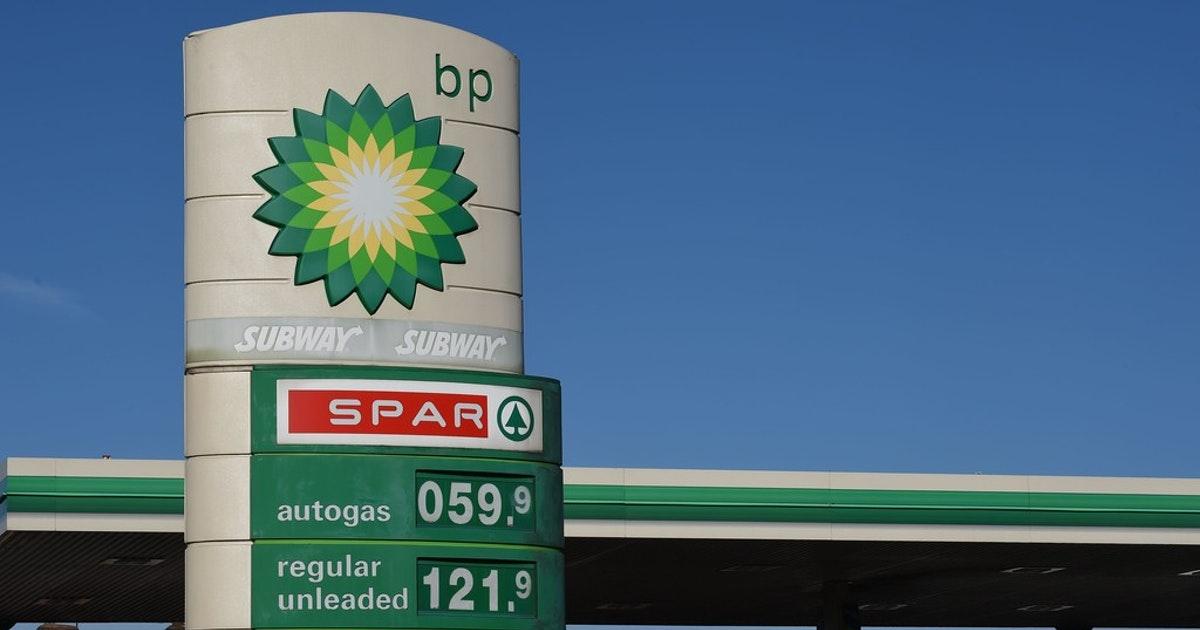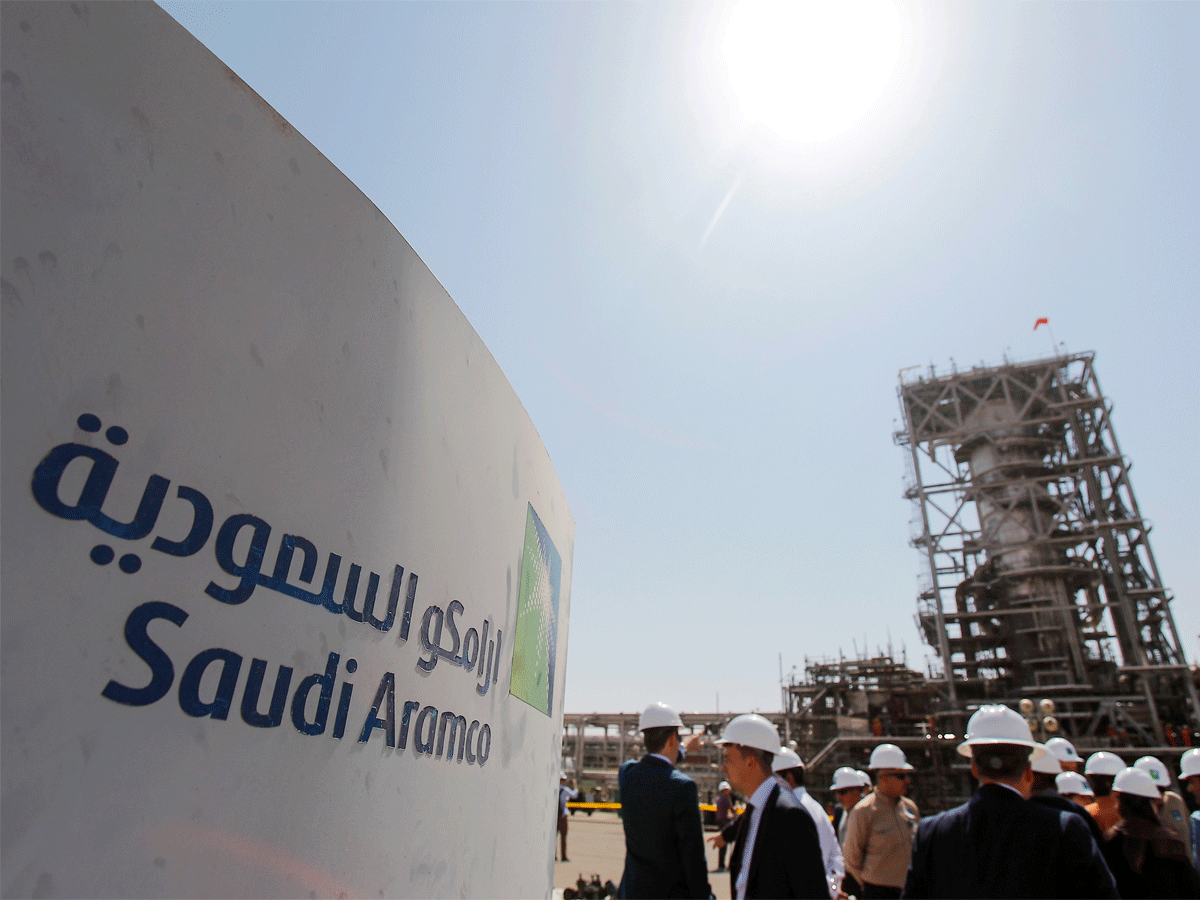What is the richest company in the world? If you think tech companies dominate the list you thought wrong. Good ol’ Walmart tops the list with a value more than twice of Apple’s, the richest company to come out of Silicon Valley. Here’s an updated 2019 list of the richest companies in the world for 2019.
- Walmart – $514.4 billion revenue in 2019
- Sinopec Group – $414.6 billion revenue in 2019
- Royal Dutch Shell – $396.5 billion revenue in 2019
- China National Petroleum – $392.9 billion revenue in 2019
- State Grid – $387 billion in revenue in 2019
- Saudi Aramco – $355.9 billion revenue in 2019
- BP – $303.7 billion revenue in 2019
- Exxon Mobil – $290.2 billion revenue in 2019
- Volkswagen – $278.3 billion revenue in 2019
- Toyota Motor – $272.6 billion revenue in 2019
There are several parameters by which the richest companies in the world are ranked. These include market cap, revenue, profits, and brand value. For instance, Statista.com lists the top 10 largest companies in the world by market value. The list includes leading companies that have made it big in the stock market in recent times such as Facebook, Amazon, and Alphabet. The topper is Apple whose market cap is a whopping $961.3 billion in May 2019.

Forbes has another criterion to identify the world’s top companies. It has listed the leading 100 companies in terms of brand value in 2019. Not surprisingly, this list includes renowned global brands such as IBM, Mercedes-Benz, Facebook, Toyota, and Samsung. It is topped again by Apple whose brand value is estimated to be an astonishing $205.5 billion.
What factors contribute to a company’s revenue growth?
Understanding the factors that drive revenue growth is crucial to comprehend the success of the world’s richest companies. Here are some key elements that significantly impact their revenue:
- Market Demand: A strong and increasing demand for products or services is fundamental. Companies that accurately assess and respond to market needs can capitalize on consumer preferences and drive sales.
- Innovation and Product Development: Continuous innovation allows companies to create or improve new products, keeping them competitive. This can lead to increased market share and attract new customers.
- Operational Efficiency: Streamlined operations reduce costs and increase productivity. Companies that effectively manage their resources can enhance profitability, contributing to overall revenue growth.
- Strategic Marketing: Effective marketing strategies help companies reach their target audiences. Companies can boost their visibility and attract more customers by utilizing data-driven approaches and engaging in brand-building activities.
- Global Expansion: Entering new markets can significantly increase revenue. Companies that successfully expand their operations internationally can tap into diverse customer bases and reduce reliance on domestic markets.
- Customer Retention: Focusing on customer satisfaction and loyalty can lead to repeat business and referrals. Companies that build strong relationships with customers often experience stable revenue growth.
- Diversification: Expanding product lines or services allows companies to mitigate risks associated with market fluctuations. Diversification can open new revenue streams and reduce dependency on a single market segment.
- Technology Adoption: Leveraging technology enhances operational capabilities and customer engagement. Companies that adopt the latest technologies can improve efficiency and offer better services, boosting their revenue potential.

In this article, we have selected the top 10 richest companies in the world based on their fiscal 2019 revenue. China’s growing financial muscle can be gauged by the fact that three companies from the country find a place in the list which is dominated by players in the oil and gas industry. The topper is Walmart which has added online retail to its huge number of brick-and-mortar hypermarkets in multiple nations. Without much ado, let’s get down to the brass tacks and learn more details about the top 10 richest companies in the world by revenue.
10. Toyota Motor – $272.6 billion revenue in 2019

Toyota Motor has punched a respectable 2.8% in revenue percent change from last year. However, it now ranks four spots down at number ten from the sixth spot. With assets worth more than $469.2 billion and a workforce of 370,879 employees, it generated a revenue of about $272.6 billion in 2019.
However, net profits are down. This is due to the decline in sales across North America, Asia, and Japan. The downturn is believed to be caused by customer preferences shifting away from traditional passenger vehicles.
But, in 2018, efforts increased to move the company into the future. With a total investment of $500 million in Uber, it seeks to become a dominant player in the autonomous vehicles market today and in the future.
9. Volkswagen – $278.3 billion revenue in 2019

Volkswagen literally means “people’s car” in German. Founded way back in 1937, this iconic automaker has appeared for twenty-five years on the Global 500 List. This year, it ranks 9th overall with a revenue of $278.3 billion.
Also, it recorded a 9.3% profit percent change as well. This is despite being embroiled in a diesel testing emissions scandal for a while. The company that owns about 70% of the US passenger-car diesel market was found to have installed emissions software allowing vehicles being tested for emissions to switch between two distinct operating modes. Thus, fooling testing bodies. This is not for all VW cars though. However, it lost $3.6 billion in charges relating to this.
Today, just like its rivals, it is going into areas like self-driving and electric cars. Moreover, it has partnered with longtime competitors like Toyota subsidiary Hino Motors and Ford to create trucks and delivery vans.
8. Exxon Mobil – $290.2 billion revenue in 2019

Exxon Mobil posted revenue of $290.2 billion. Its 71,000 employees worldwide are headed by Darren W. Woods at their HQ in Irving, Texas. Like some top companies including petroleum refining competitors Shell and BP, it has been on the Global 500 list for twenty-five years.
With a profit of around $20.8 billion, it ranks as the eighth richest company when it comes to revenue in 2019. Also, it has assets worth $346.1 billion that it seeks to maneuver to get its name up to the top spot in the future.
Just this November, it is looking to optimize carbonate fuel cell technology with a $60 million agreement with FuelCell Energy. If this is successful, this could reduce carbon dioxide emissions from industrial operations.
7. BP – $303.7 billion revenue in 2019

This major energy player in the petroleum refining industry has assets valued at $282.1 billion to date. In 2019, it generated $303.7 billion in revenue at a $9.3 billion profit. The 2019 profit is 176% more than that of last year which is nearly triple.
BP has been listed in the Global 500 for twenty-five years now. With its HQ in London and headed by Robert W. Dudley as CEO, it focused on growing its stake in the US energy market. This includes a completed $10.5 billion deal to buy shale assets from BHP.
Once known as the Anglo-Persian Oil Company Ltd. when it was first founded in 1909, it now has many stakes across different ventures worldwide. Subsidiaries include Castrol, Amoco, and Aral AG.
6. Saudi Aramco – $355.9 billion revenue in 2019

Last year, Saudi Arabia’s state-owned oil company earned a whopping $111 billion in profit. This was nearly twice as much as Apple. This is all thanks to its business model. Extract oil for a little less than $10 a barrel and sell it for $60.
This year, it recorded a revenue of $355.9 billion. That’s a 35.3% percent change. Also, the company managed to reach this using its total assets worth $358.8 and its 76,418-strong workforce. Also, it wasn’t previously ranked in the Global 500 List. This is its first year and it debuts at six.
Headquartered in Dhahran, Saudi Arabia and headed by CEO Amin H. Nasser, this energy giant is venturing to execute some mergers and acquisitions (M&A) in the near future. This includes acquiring SABIC a domestic industrial conglomerate. Also, they are looking to buy minority stakes in a Texas-based natural gas plant and refiners in Asia.
5. State Grid – $387 billion revenue in 2019

This is China’s state-owned power company providing electricity for up to 1.1 billion people. Its services cover about 88% of the most populous nation’s geography. With an asset of $572.3 billion and employees 917,717 strong, it recorded a strong 10.9% revenue change up to total revenue of $387 in 2019.
This was a drop from last year in ranking as it placed as the 2nd richest company by revenue. However, this drop was not due to a negative percent change in revenue. Other companies just did better in this regard. But, the company also witnessed a -14.3% change in profits this year.
Currently, the world’s largest utility has stakes in different assets all over the world. It also operates many of them. Its investments are in different geographies ranging from Italy to Australia alarming many regulators. Moreover, State Grid is also looking for clean energy investments just like other energy giants.
4. China National Petroleum – $392.9 billion revenue in 2019

The state-owned China National Petroleum Corp (CNPC) is the parent company of PetroChina, the second-largest oil producer. PetroChina doesn’t only explore, refine, and sell natural gas and crude oil. It also manufactures equipment and offers oil field services.
With PetroChina and other diversification efforts internationally, the company earned a total revenue of $392.9 billion in 2019. This, with assets worth $601.8 billion and more than 1.3 million employees in the world, makes CNPC the fourth-richest company in the world today.
This position is not easy to hold. Currently, it is facing many pressures from different sides. First, it faces stricter environmental standards. Second, the not-so-solid trade relations with the US may go for a bad turn in the future. However, leadership is resolute and seem to be able to keep CNPC near the top for years to come.
3. Royal Dutch Shell – $396.5 billion revenue in 2019

This energy behemoth places third for the year with revenues reaching $400 billion. Also, profits soared 80% reaching $23 billion in 2019. The current revenue of this Anglo-Dutch company jumped two places from last year’s Global 500 List. This is thanks to it being able to leverage the rising US oil production by investing more in the US shale boom.
Moreover, it is also giving way to pressure from investors who want it to go greener. Thus, in December, the company will tie executives’ wages to carbon emission reduction targets.
The future is bright for Royal Dutch Shell with Ben van Beurden at the helm as CEO. The company has been listed a total of twenty-five years on the Global 500 list already. With assets worth $399.1 billion and a workforce that is 81,000 strong, Royal Dutch Shell will likely stay a top ten company for years to come.
2. Sinopec Group – $414.6 billion revenue in 2019

Sinopec is China’s largest state-owned oil and gas company with assets worth $329.1 billion employing 619,151 people. Being state-owned naturally puts in a better position for success in the country.
For the first six months of 2019, Sinopec reported a 15.3% year-on-year growth in revenue to $209.8 billion. Now, it finished the year with a whopping $414.6 billion due to a revenue percent change of 26.8%.
Despite facing weak oil prices and other uncertainties brought about by the global oil market and also the geopolitical milieu, Sinopec has managed to finish as the second richest company in 2019. This is despite the company having temporarily suspended US crude imports which set a record trading loss of $690 million in the 4th quarter.
1. Walmart – $514.4 billion revenue in 2019

Founded in 1950 as a discount department store, this American retail behemoth has been in the Global 500 List for twenty-five years straight. Currently, it is dealing with stiff competition from other giants like Costco, Walgreens, and CVS among others. Amazon may be its stiffest competition to date.
In 2018, Walmart finally got to compete well against Amazon. It set up its thousands of stores for grocery pickup increasing its online sales by 40%. This helped its total revenue to rise by 2.8% up to $514.4 billion in 2019. Moreover, thanks to the demise of its rivals like Toys ‘R’ Us, it recorded its best holiday season in years.
Also, it looks like this strategy will maneuver its $219 billion worth of assets and 2.2 million employees to help it become more profitable in the years to come. Other Walmart innovations that can help it stay near the top of Fortune’s Global 500 List include self-driving delivery vans and personal shopping services among others.
Key Insights
- Top Company by Revenue: Walmart leads the list of the richest companies by revenue in 2019, with a staggering $514.4 billion.
- Diverse Industries: The top 10 richest companies span various industries, including retail, oil and gas, automotive, and energy.
- Significant Growth: Many companies, like Sinopec and Royal Dutch Shell, have shown significant year-on-year revenue growth.
- Geographical Influence: China’s financial influence is evident, with three Chinese companies making the top 10 list.
- Technological Advancements: Companies such as Toyota and Volkswagen are investing heavily in future technologies like autonomous vehicles and electric cars.
- Environmental Considerations: Several companies, including Royal Dutch Shell and State Grid, are shifting towards cleaner energy and sustainability initiatives.
- Impact of Scandals: Volkswagen’s revenue and profits have been impacted by past emissions scandals but it still remains in the top 10.
- Strategic Partnerships: Companies are forming strategic alliances, such as Volkswagen’s partnerships for creating trucks and delivery vans.
- Challenges and Opportunities: Companies like Exxon Mobil and Saudi Aramco face both opportunities in new technologies and challenges in environmental regulations and market volatility.
FAQ
- What is the primary criterion for ranking the richest companies in this article? The primary criterion used in this article for ranking the richest companies is their fiscal 2019 revenue.
- Why is Walmart considered the richest company in the world by revenue? Walmart is considered the richest company by revenue because it generated $514.4 billion in 2019, surpassing all other companies on the list.
- Which industries dominate the list of the richest companies in 2019? The list is dominated by companies from the retail, oil and gas, automotive, and energy industries.
- How does China’s economic influence reflect in the list? China’s economic influence is reflected by the presence of three Chinese companies—Sinopec Group, China National Petroleum, and State Grid—among the top 10 richest companies by revenue.
- What technological advancements are Toyota and Volkswagen investing in? Toyota and Volkswagen are investing in autonomous vehicles, electric cars, and forming strategic alliances to advance in these areas.
- How are companies addressing environmental concerns? Companies like Royal Dutch Shell and State Grid are investing in clean energy and implementing sustainability initiatives to address environmental concerns.
- What impact did the emissions scandal have on Volkswagen? The emissions scandal impacted Volkswagen by causing financial losses, but the company has still managed to maintain its place in the top 10 richest companies by focusing on new technologies and strategic partnerships.
- What strategic steps did Walmart take to compete with Amazon? Walmart increased its online sales by 40% through initiatives like grocery pickup at its stores and innovations like self-driving delivery vans and personal shopping services.
- What are the future prospects for Saudi Aramco? Saudi Aramco is looking to execute mergers and acquisitions, including acquiring domestic and international stakes, which could further bolster its revenue and global influence.
- Which company recorded the highest profit in 2019 among the top 10? Saudi Aramco recorded the highest profit in 2019 among the top 10 companies, with a profit of $111 billion.























Leave a comment!